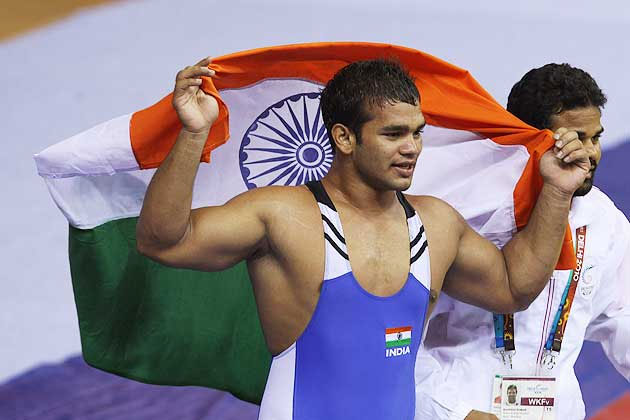Narsingh's sabotage theory dismissed by CAS
August 23, 2016 11:02

In a detailed report, the Court of Arbitration for Sports has said wrestler Narsingh Yadav failed to produce any "real evidence" regarding the "sabotage theory" he had advanced and the balance of probabilities was that he took the "banned substance intentionally in tablet form", which is why he has been banned for four years.
In its full award, the ad hoc panel of the CAS relied on expert evidence that Narsingh's dope offence was not due to one-time ingestion of the prohibited substance, and its concentration in the first test result (June 25) was so high that it had to come from an oral ingestion of one or two tablets of 'methandienone', rather than from a drink where the powder had been mixed with water.
The expert opinion was given by Professor Christiane Ayotte from Canada, who was presented by the World Anti-Doping Agency.
Narsingh's urine sample taken out-of competition on June 25 was found to contain metabolites of methandienone and long term metabolite of methandienone. Another sample taken out of competition on July 5 was also found to contain long term metabolites of methandienone.
Rubbishing the sabotage theory of Narsingh, the CAS panel observed, "...all in all found the sabotage theory possible, but not probable and certainly not grounded in any real evidence. The panel therefore determined that the athlete had failed to satisfy his burden of proof and the panel was satisfied that the most likely explanation was that the athlete simply and intentionally ingested the prohibited substance in tablet form on more than one occasion."
CAS had handed Narsingh a four-year ban in its 'operative award' on August 18 barely hours before his 74kg freestyle opening bout was scheduled at the Rio Olympics.





 © 2024 Rediff.com -
© 2024 Rediff.com -